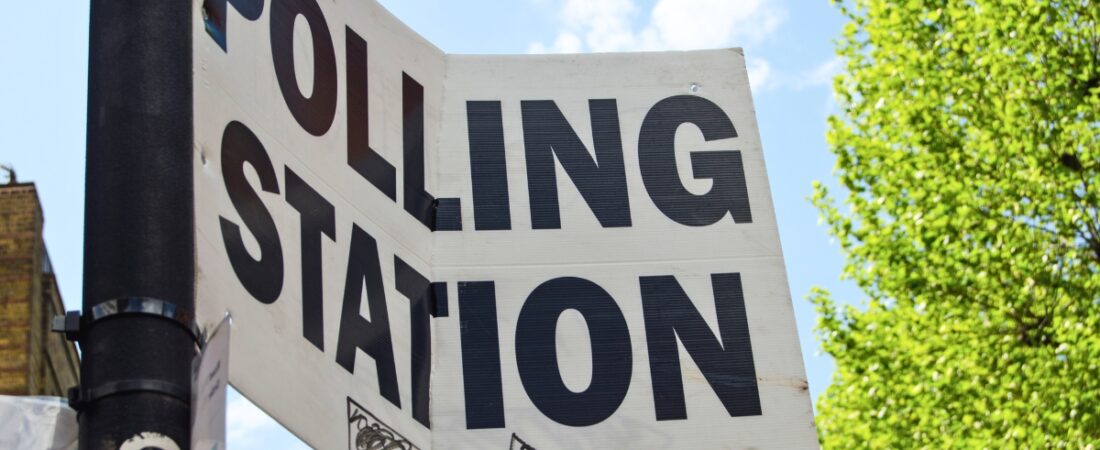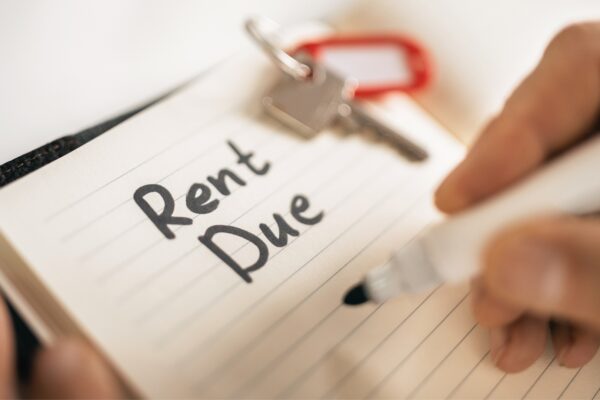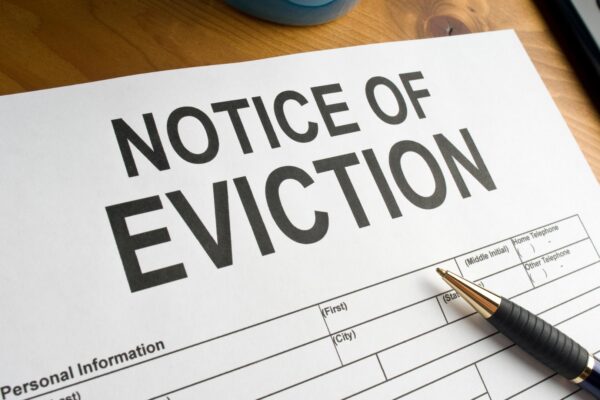Understand the commitments from each party’s manifesto and their potential effects on landlords in the general election 2024.
As we approach the general election, we know you’re keen to understand each party’s plans – especially after the Renters (Reform) Bill and the abolition of Section 21 were scrapped at the last minute.
To make things easier, we’ve put together a summary of what the leading national parties are promising in their manifestos.
We’ve kept it straight to the point without any extra commentary – just the facts on what each party plans for the private rented sector, energy efficiency and how taxation changes might impact landlords across the UK.
Disclaimer: The parties are listed in alphabetical order for clarity. This does not indicate any preference or viewpoint by OpenRent towards any specific political party.
Become an OpenRent landlord today and take a proactive role in managing your rentals. Explore Our Packages
Conservative and Unionist Party
Housing and the private rented sector
- Housing supply: The party states they would deliver 1.6 million homes in England in five years.
- Leasehold reform: They would complete the leasehold reform by capping ground rents at £250 and ending forfeiture misuse, making it easier for leaseholders to switch to commonhold.
- Renters (Reform) Bill: They would re-introduce the Renters (Reform) Bill, which was scrapped at the last minute, not making it into the ‘wash-up’ period. Again, this promise includes abolishing Section 21 and strengthening other grounds for eviction, particularly for tenants engaging in anti-social behaviour.
- Management of holiday lets: The party would grant councils the necessary authority to control the growth of holiday lets, addressing concerns about community disruption and the impact on local residents.
- Housing initiatives for first-time buyers: They would permanently increase the threshold for Stamp Duty for first-time buyers to £425,000, and enhance the Help to Buy scheme, offering an equity loan of up to 20% for new build homes, enabling first-time buyers to purchase with a 5% deposit.
Energy efficiency and environment
- Net zero policy: Maintaining the pledge to achieve net zero emissions by 2050.
- Energy efficiency: Allocating £6 billion over the next three years to enhance energy efficiency, which the party claims could improve approximately a million homes.
Tax
- No rise in income tax: After abolishing Class 2 contributions in April, the Conservative Party announces it wouldn’t raise the rate of income tax or VAT.
- Capital Gains Tax relief: A temporary two-year Capital Gains Tax relief would be introduced for landlords who sell to their existing tenants, aiming to support homeownership.
- Family home tax guarantee: They promise not to increase council tax bands, conduct costly council tax revaluations, or reduce council tax discounts. Private Residence Relief would be maintained, protecting homes from Capital Gains Tax, and there would be no increase in Stamp Duty to support homeowners.
You can find the Conservative Party’s complete manifesto here.
You might also be interested in…
- When Will Section 21 Evictions Be Scrapped?
- All You Need to Know About Right to Rent Checks
- Guide to the Renters’ Rights Bill for Landlords 2025
- What Are the EPC Requirements for Landlords?
- Renting to Students: Guarantors, Advance Payments, HMO licence and more
Green Party
Housing and the private rented sector
- Rent controls: Local authorities would have the power to control rents in areas where the rental market is unaffordable for many residents.
- No-fault evictions and tenants’ rights: The party would introduce “stable rental tenancies” and end no-fault evictions to provide tenants with security. The Green Party would also introduce the right for tenants to demand energy efficiency improvements.
- Tenancy dispute resolution: They would establish private residential tenancy boards for quick and affordable resolution of disputes before they escalate to tribunals.
Energy efficiency and environment
- Net zero policy: The party’s commitment is to achieve net zero emissions by 2040 at the latest.
- Home retrofit programme: The Green Party would implement a local-authority-led retrofit programme to insulate homes, upgrade to clean heating systems, and adapt buildings to climate conditions.
- Raising the Minimum Energy Efficiency Standard (MEES): The Green Party pledges to upgrade the MEES to EPC C.
Tax
- Capital Gains Tax reform: The Greens would align Capital Gains Tax rates with income tax rates, affecting a small percentage of taxpayers, as they claim.
- No rise in income tax: They pledge no increases in the basic rate of income tax during the current cost-of-living crisis.
- Taxation reform: They are planning to re-evaluate Council Tax bands, which would mean removing business rate relief from specified zones and properties, and conducting a survey on landholdings to enable fair taxation of land.
You can find the Green Party’s complete manifesto here.
Labour Party
Housing and the private rented sector
- End to ‘no fault’ evictions: Labour would immediately abolish Section 21 evictions, empower renters to challenge rent increases, and extend protections to prevent exploitation and discrimination in the private rented sector. They also mention extending Awaab’s Law to the private rented sector, requiring landlords to investigate known or reported hazards within 14 calendar days.
- Reform of leasehold system: They would end the leasehold system, would promote commonhold as the default tenure, and would address issues such as unregulated ground rent charges and unfair maintenance costs.
- Building safety: They would commit to stringent building safety regulations to prevent tragedies like the Grenfell fire from recurring.
- Housing construction: The party pledges to build 1.5 million new homes in the next parliament, with a focus on ensuring first-time buyers would have priority and would tackle speculation by international investors.
- Support for first-time buyers: The party would introduce a comprehensive mortgage guarantee scheme to help first-time buyers with lower deposit requirements and reduce mortgage costs.
Energy efficiency and environment
- Home upgrades to reduce bills: The party would invest £6.6 billion to upgrade five million homes, aiming to reduce household bills.
- Raising the Minimum Energy Efficiency Standard (MEES): They pledge all privately rented homes to meet minimum energy efficiency standards by 2030.
Tax
- Tax policy: The party would not implement any increases in National Insurance, Income Tax rates, or VAT.
- Monetary Policy: They would commit to maintaining low mortgage rates through the oversight of a stable, independent Bank of England targeting 2% inflation.
- Inheritance tax: Labour would end the use of offshore trusts to avoid inheritance tax, ensuring taxes are paid by those residing in the UK.
You can find the Labour Party’s complete manifesto here.
Remain compliant and in control of your tenancies with our professional-grade tenancy creation service. Explore Rent Now
Liberal Democrats
Housing and the private rented sector
- Housing development: The party would increase the building of new homes to 380,000 a year, including 150,000 social homes.
- Section 21 evictions and renters’ rights: They would ban no-fault evictions, would make three-year tenancies the default, and would create a national register of licensed landlords.
- Right to Buy: Liberal Democrats would give local authorities, including National Park Authorities, powers to end Right to Buy.
- Residential leaseholds: The party would abolish residential leaseholds and would cap ground rents to a nominal fee.
- Second homes and short-term lets: They would give local authorities new powers to control second homes and short-term lets, including higher council taxes and stamp duty surcharges.
- Right to Rent: Lib Dems would repeal the Conservatives’ ‘Right to Rent’ scheme that requires landlords to check tenants’ immigration status.
Energy efficiency and environment
- Net zero policy: The party pledges to achieve net zero greenhouse gas emissions by 2045 at the latest.
- Energy efficiency: They would make homes warmer and cheaper to heat with a 10-year emergency upgrade programme, starting with free insulation and heat pumps for low-income households, and would ensure all new homes are zero-carbon.
- Raising the Minimum Energy Efficiency Standard (MEES): Lib Dems would reintroduce requirements for landlords to upgrade the energy efficiency of their properties to EPC C or above by 2028.
Tax
- Europe relations: They would repair the relationship with Europe to boost the economy, investment, jobs, and tax revenue.
- Tax cuts: The party would cut income tax by raising the tax-free personal allowance when public finances allow.
- Maintaining inflation targets: Lib Dems would foster economic growth and investment by protecting the independence of the Bank of England, maintaining a 2% inflation target, and ensuring all fiscal events would have independent forecasts from the Office for Budget Responsibility.
You can find and read the Liberal Democrats’ complete manifesto here.
Reform UK
Housing and the private rented sector
- Scrap section 24: The party would restore landlords’ ability to deduct finance costs and mortgage interest from tax on rental income in a bid to “encourage smaller landlords into the market”.
- Abolish the Renters (Reform) Bill: Reform UK would completely scrap the Renters (Reform) Bill (incl. the abolition of Section 21) and would instead enhance monitoring, appeals, and enforcement processes for renters with grievances.
- Protection for leaseholders: They would work on ensuring transparent charges for leasehold or freehold residents, enforce Section 106 agreements, and simplify processes to extend leases to 990 years and buy freehold.
- Review the planning system: Reform UK would focus on fast-tracking planning for brownfield sites and implementing a ‘Loose fit planning’ approach for large residential developments to streamline procedures.
Energy efficiency and environment
- Scrap net zero and related subsidies: Reform UK would work on discontinuing the net zero initiative and associated subsidies, citing potential annual savings of over £30 billion for the next 25 years.
Tax
- Cut residential stamp duty: The party would adjust stamp duty rates to stimulate economic activity and housebuilding, with 0% below £750,000, 2% from £750,000 to £1.5 million, and 4% above £1.5 million.
- Abolish inheritance tax for all estates under £2 million: They would exempt estates under £2 million from inheritance tax, with a proposed 20% tax rate applying to estates above £2 million, alongside an option to donate to charity.
- Lift the income tax start point: The party proposes raising the income tax threshold to £20,000 annually. The basic tax rate would remain at 20%, with the higher rate threshold set at £70,000.
- Corporation tax and VAT threshold: Reform UK would reduce the main corporation tax rate from 25% to 20% and raise the threshold for paying the tax from £50,000 to £100,000. They would also raise the VAT threshold to £120,000 to “free small entrepreneurs from red tape”.
You can find Reform UK’s complete manifesto here.




It’s not looking good.